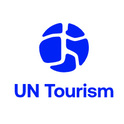Jamaica conference to address the role of tourism in employment creation and inclusive growth
UNWTO, the Government of Jamaica, the World Bank Group and the Inter-American Development Bank will co-host a Conference on Jobs and Inclusive Growth on 27-29 November in Montego Bay, Jamaica. Under the theme 'Partnerships for Sustainable Tourism', the event will assess and discuss the future of the sector in the Caribbean, particularly in view of the impacts of natural disasters such as the recent hurricane Irma.
The summit aims at identifying successful models and future initiatives of public-private partnerships (PPPs) that will contribute to sustainable tourism development globally. It will also serve as a platform for leaders from the tourism sector, along with governments, donors and development and finance organizations, to put in place an international road map to promote inclusive economic and social development through tourism.
The Conference will commence with an introductory session on the future of tourism in the Caribbean region.
"Tourism has the potential to contribute to all 17 Sustainable Development Goals, yet we can only achieve our common objectives if we build strong partnerships. The Jamaica Conference will be a milestone in setting a new framework for collaboration in the promotion of sustainable tourism and an important legacy of the International Year of Sustainable Tourism for Development 2017" said UNWTO Secretary General Taleb Rifai.
Over 100 speakers will share their experience and knowledge during the three-day event.
The first day will cover themes such as:
– Tourism and Sustainability – Threats, Risks, Opportunities and Challenges
– Current Trends in Indigenous Tourism
– Talent Development and Human Capital Trends
– Community Tourism
– Tourism Networks: Creating Linkages, Reducing Leakages
– Science, Technology and Innovation in Tourism and
– Caribbean Tourism
On the second day, plenary sessions will guide the discussions. The first will focus on 'Collaborating for Success – Public/Private Engagement Mechanisms for Tourism Development and Growth', where ministers and CEOs will share their experiences on the keys, pitfalls and myths to successful collaboration between the public and private sector on tourism development. Collaboration and partnership models in such areas as infrastructure, development finance, large-scale asset management and service delivery will be addressed extensively.
The second round table will serve to facilitate exchanges by sector leaders on the emerging trends and predicted key drivers of destination development over the next ten years. Emphasis will be placed on how sustainable tourism partnerships can contribute to job creation, connectivity and inclusive growth.
The last day of the conference will look into the issues of:
– Technical Assistance and Financing,
– Donor Funded Programs that Balance Scale, Sustainability and Inclusion,
– Successful Models of Destination Management;
– Education, Training & Innovation and
– Cozumel – Partnerships in Action.
The Conference is organized by the World Tourism Organization (UNWTO), the Ministry of Tourism of Jamaica, the World Bank Group and the Inter-American Development Bank, in collaboration with the World Travel and Tourism Council (WTTC), the Caribbean Hotel and Tourism Association, the Caribbean Tourism Organization, Chemonics International and the George Washington University.
About UN Tourism
The World Tourism Organization (UN Tourism) is the United Nations agency responsible for the promotion of responsible, sustainable and universally accessible tourism.
As the leading international organization in the field of tourism, UN Tourism promotes tourism as a driver of economic growth, inclusive development and environmental sustainability and offers leadership and support to the sector in advancing knowledge and tourism policies worldwide.
Our Priorities
Mainstreaming tourism in the global agenda: Advocating the value of tourism as a driver of socio-economic growth and development, its inclusion as a priority in national and international policies and the need to create a level playing field for the sector to develop and prosper.
Promoting sustainable tourism development: Supporting sustainable tourism policies and practices: policies which make optimal use of environmental resources, respect the socio-cultural authenticity of host communities and provide socio-economic benefits for all.
Fostering knowledge, education and capacity building: Supporting countries to assess and address their needs in education and training, as well as providing networks for knowledge creation and exchange.
Improving tourism competitiveness: Improving UN Tourism Members' competitiveness through knowledge creation and exchange, human resources development and the promotion of excellence in areas such as policy planning, statistics and market trends, sustainable tourism development, marketing and promotion, product development and risk and crisis management.
Advancing tourism's contribution to poverty reduction and development: Maximizing the contribution of tourism to poverty reduction and achieving the SDGs by making tourism work as a tool for development and promoting the inclusion of tourism in the development agenda.
Building partnerships: Engaging with the private sector, regional and local tourism organizations, academia and research institutions, civil society and the UN system to build a more sustainable, responsible and competitive tourism sector.
Our Structure
Members: An intergovernmental organization, UN Tourism has 160 Member States, 6 Associate Members, 2 Observers and over 500 Affiliate Members.
Organs: The General Assembly is the supreme organ of the Organization. The Executive Council take all measures, in consultation with the Secretary-General, for the implementation of the decisions and recommendations of the General Assembly and reports to the Assembly.
Secretariat: UN Tourism headquarters are based in Madrid, Spain. The Secretariat is led by the Secretary-General and organized into departments covering issues such as sustainability, education, tourism trends and marketing, sustainable development, statistics and the Tourism Satellite Account (TSA), destination management, ethics and risk and crisis management. The Technical Cooperation and Silk Road Department carries out development projects in over 100 countries worldwide, while the Regional Departments for Africa, the Americas, Asia and the Pacific, Europe and the Middle East serve as the link between UN Tourism and its 160 Member States. The Affiliate Members Department represents UN Tourism's 500 plus Affiliate members.
Rut Gómez Sobrino
Principal Media Officer
(+34) 91 567 81 60
UN Tourism
